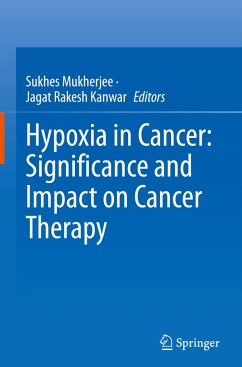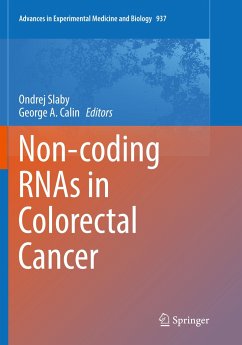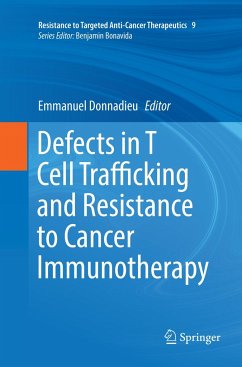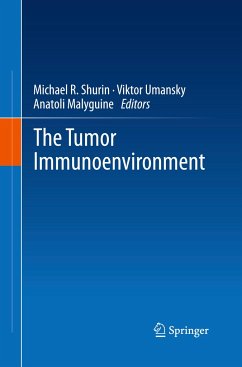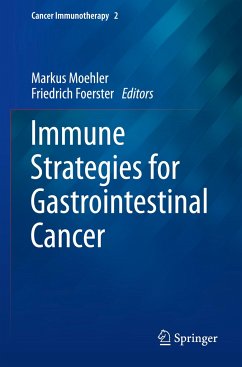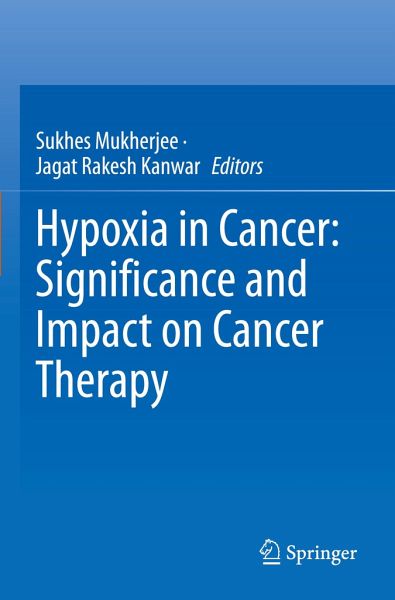
Hypoxia in Cancer: Significance and Impact on Cancer Therapy
Versandkostenfrei!
Versandfertig in 6-10 Tagen
151,99 €
inkl. MwSt.

PAYBACK Punkte
76 °P sammeln!
This book reviews the central role of hypoxia in cancer initiation and progression. It discusses the mechanisms of hypoxia in chemoresistance, radioresistance, angiogenesis, vasculogenesis, metastasis, metabolic, and genomic instability. It also explores the potential of hypoxia in the diagnosis and treatment of cancer. The book provides an overview of hypoxia imaging, its biological relevance, and mechanism of action. It helps in understanding the molecular mechanisms of the regulation of senescence by hypoxia. It explores the contribution of hypoxia to immune resistance and immune suppressio...
This book reviews the central role of hypoxia in cancer initiation and progression. It discusses the mechanisms of hypoxia in chemoresistance, radioresistance, angiogenesis, vasculogenesis, metastasis, metabolic, and genomic instability. It also explores the potential of hypoxia in the diagnosis and treatment of cancer. The book provides an overview of hypoxia imaging, its biological relevance, and mechanism of action. It helps in understanding the molecular mechanisms of the regulation of senescence by hypoxia. It explores the contribution of hypoxia to immune resistance and immune suppression/tolerance and determines the hypoxia-responsive long non-coding RNAs in regulating hypoxic gene expression at chromatin, transcriptional, and post-transcriptional levels. Further, it presents the functional link between hypoxia and miRNA expressions and hypoxia-regulated miRNAs in cancer cell survival in a low oxygen environment. Lastly, it discusses the applications of tumor-on-a-chip technology for the understanding of hypoxia-tumor microenvironment. This book is a valuable source for oncologists and scientists working to understand the role of hypoxia in cancer and therapeutic approaches.



